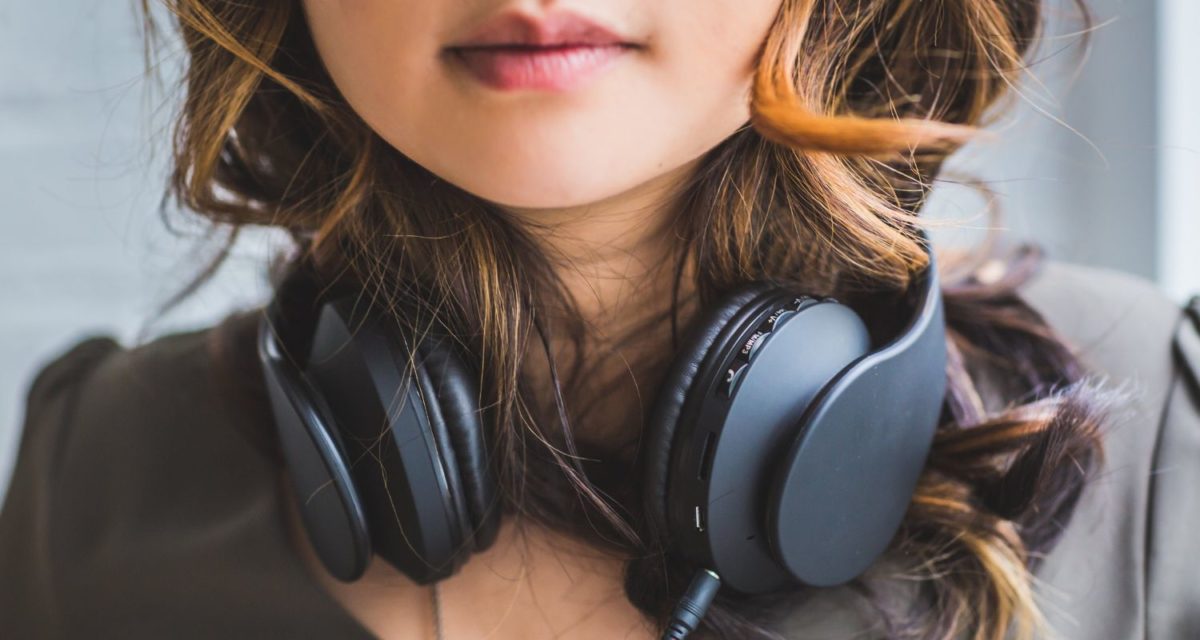HEADPHONES
Headphones are ubiquitous in our modern world. We use them for taking phone calls in public or listening to music on a run or during our commute. There are endless variations of styles and price ranges making them a nearly universal accessory. It is imperative, however, that we form safe habits in regards to how we use them.
The World Health Organization (WHO) estimates that 1.1 billion people risk life-changing disabling hearing loss as a result of bad hearing health habits. This includes frequenting nightclubs, bars, and concerts, but listening to loud music on our personal devices is the most significant threat. People under the age of 35 are the most likely to listen to music on their mobile devices, and The WHO estimates that that 50% of these people are in the habit of listening to their headphones at dangerously loud volumes.
THE POTENTIAL RISKS HEADPHONES POSE
When used properly headphones should not pose any risk. The problem is that few people seem to understand the correct standards. Extended periods listening at high volumes can damage the delicate parts of your ears that convert sound waves into signals that the brain can identify, causing either hearing loss or tinnitus. Our ears have evolved to register very quiet sounds. It is easy to understand how this evolutionary advantage helped us to advance as a species. As a result, our ears are not equipped to deal with unnaturally loud sounds.
The tiny hairs within our ears vibrate against our eardrums when they are triggered by sound waves. Louder sounds create bigger sound waves, which cause stronger vibrations. These stronger vibrations can be dangerous, especially if they continue for extended periods. The hairs are traumatized and die off.
This kind of hearing loss may be temporary. Many of us have experienced this kind of thing after attending a loud concert, a couple days later your hearing returns to normal. If the hairs are overworked too much or for too long, however, like age-related hearing loss, it will not be the kind of damage that one bounces back from. We are each born with an average of around 16,000 hairs in our inner ears. Once a full third of these have died off, the damage is irreversible.
FORM GOOD HABITS WITH INTENTIONALITY
To avoid hearing loss the WHO suggests that sound levels on your headphones should not exceed 70 decibels. For context, normal conversations are around 60 decibels. Car engines measure about 90 decibels. 120 decibels is loud enough to cause instantaneous hearing damage.
Different combinations of devices and headphones give off different decibel levels. So it is difficult to give any specific advice in those terms. But a solid rule of thumb would be to keep your device’s output at under 60% of its maximum output. Though this of course is not completely reliable either as different media is set to different volumes, for example YouTube compared to a streaming platform. Apps that measure exposure to potentially dangerous sound levels are becoming more and more common and should be taken seriously. For now, the standard of keeping your device at 60%, and limiting it to 60 minutes at a time, is a healthy habit to keep. Over-the-ear headphones are also a healthier option than earbuds as the sound is not aimed so intensely and directly at your eardrums.
IT IS WORTH IT
Like so many potentially dangerous habits, listening to our headphones at loud volumes for prolonged periods, has become normalized. But when people understand exactly how common hearing loss is, affecting over 13% of the total population over 18 years old, and how potentially catastrophic its consequences on your overall health can be, it should be very easy to choose proper health. Studies show that over 2/3 of people that suffer from disabling hearing loss do not seek proper treatment. It is so simple to trace how simply untreated hearing loss unravels into feelings of social isolation, loneliness, and depression. And from there, how easily depression spirals into disorientation and even cognitive impairment. But all of this is so preventable.
Keep up with your annual hearing tests to know exactly how your hearing has been damaged in ways that you may not even recognize. And commit today to these simple habits that will expand and deepen your quality of life every day. We’re here to help – contact us today!

